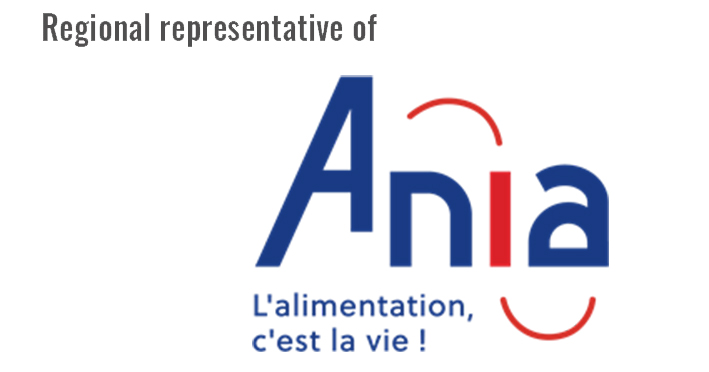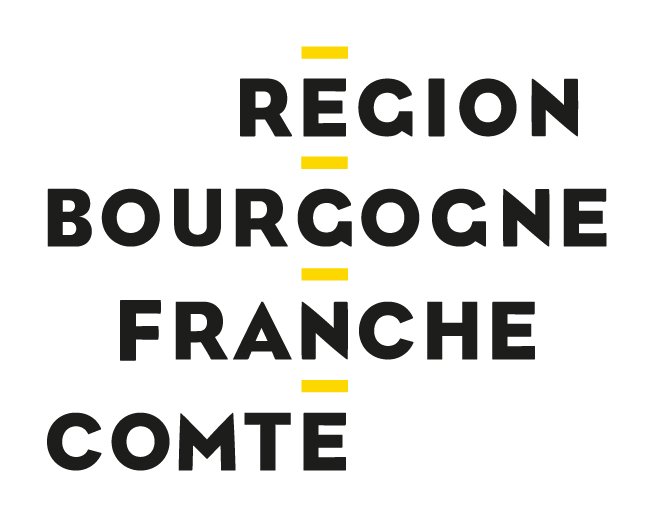28 Feb 2020
Vitawatch: agri-food intelligence roundup for February 2020

Food and health, consumer behaviours, packaging, formulation, sustainable agriculture… What are the latest scientific advances for agri-food from around the world?
A beverage able to control your blood sugar level, a detailed analysis of your microbiota, satellite data used to improve agricultural yields in Africa, the influence of social media on diet... scientific research is ongoing in all areas of agri-food innovation.
Read our Vitawatch monthly intelligence briefing for February.
Food and Health
A ketone monester drink able to control blood sugar
In a study published in the Amercial Journal of Clinical Nutrition, Jonathan Little, associate professor at the UBC Okanagan School of Health and Exercise Sciences, examined how ketone supplements could affect blood sugar levels.
Ketones are molecules produced by the liver from fatty acids during periods of limited dietary intake, low carbohydrate diets, or intense exercise.
To carry out this experiment, 15 people consumed a drink containing ketone supplements, then, after 30 minutes, another drink containing 75g of sugar. The author observes that the drink supplemented with ketones could allow the test subjects to better control their blood sugar level with no changes to their insulin.
This is the first study to analyse the effects of beverages supplemented with ketones outside of the area of sport nutrition. These conclusions could lead to potential beverage products for treating type 2 diabetes.
Source: The American Journal of Nutrition
Sugar affects your brain chemistry in the same way as drugs
In order to provide a partial explanation for the causes of obesity, that currently affects 5% of the world's population, researchers from the Department of Clinical Medicine (Aarhus University) have sought to test the theory that saccharose affects the brain in the same way as drugs.
For the experiment, for 12 days, seven pigs consumed a daily dose of two litres of sugar water. After comparing images of the pigs' brains from the beginning and the end of the test period, the research team determined that the results clearly showed that saccharose affected the reward mechanisms in a similar way to addictive drugs, according to the authors. Both "natural" and "artificial" stimuli, like drugs, activate the brain's reward system, where neurotransmitters like dopamine and opioids are released.
According to this study, the change can be fast and dangerous. "If sugar can change the brain's reward system after only twelve days, as we saw in the case of the pigs, you can imagine that natural stimuli such as learning or social interaction are pushed into the background and replaced by sugar and/or other 'artificial' stimuli. We're all looking for the rush from dopamine, and if something gives us a better or bigger kick, then that's what we choose" explains Michael Winterdahl, the lead author of the study.
Source: Eureka Reports
Understanding your microbiote, cell by cell
Published in the journal Microbiome, a study carried out by a team from Waseda University (Japan) has presented a new technique of genomic sequencing enabling the exploration of gut microbiota with a cell by cell degree of accuracy.
This research could lead to a better understanding of how to improve the growth of beneficial microorganisms, in particular through the intake of certain forms of fibre, such as inuline. Previous studies have shown that one of the ways to improve beneficial microorganism growth, and thus to maintain a healthy gut, is to add soluble fibre to our diet. However, it has not been possible until now to accurately identify how each type of bacteria responded to dietary fibre.
The novel laboratory technique called single-cell amplified genomes allows researchers to isolate each separate bacterial genome and to characterise their specific function in the microbiota, such as the fermentation of dietary fibre.
It is noted that the technique can be applied to bacteria in our gut microbiota, but also for the analysis of other bacterial ecosystems, for example in the study of ocean or soil microorganisms. The researchers hope to transfer their results to other applications, in medecine or in manufacturing, with the goal of advancing human health.
Source: Microbiome
Consumer behaviours
The surface texture of your food can affect your perception of its healthiness
A new study lead by Dr Cathrine Jansson-Boyd, a specialist in consumer psychology at Anglia Ruskin University, examines how the appearance of a product can influence consumer perceptions. For this study, a range of six biscuits were offered, each with a different surface texture.
The experiment's participants observed various oat biscuits whose surface was smooth, intermediate or rough. They then evaluated the biscuits according to their perceived "health benefits". Finally, they rated the biscuits according to tastiness, crunchiness, chewiness, pleasantness and likelihood of purchase based only on their visual appearance, not on their taste or touch.
The results indicated that the participants considered that the biscuits with a rough texture were healthier. However, the smooth-surfaced biscuits were perceived as being tastier and crunchier, and more likely to be bought.
In the study, published in Food Quality and Preference, the research team concluded that perceived tastiness increases as healthiness decreases.
"At a time when the World Health Organisation has declared that there is an obesity epidemic, it is essential to think of ways to encourage improved eating patterns. Our research provides a good starting point in how to promote healthier food products," says Cathrine Jansson-Boyd.
Source: Food Quality and Preference
Social media influences dietary behaviour
According to researchers from Aston University (United Kingdom), social media users are influenced by the dietary behaviour of their social circle.
A study focused on 360 students who estimated the quantity of fruit, vegetables, "high energy" snacks and sweet beverages that their Facebook friends consumed daily. These results were then analysed in addition to the real dietary habits of the study's participants. The results showed that those who thought that their social circle "approved" of the consumption of fast-food also consumed it themselves. And inversely, those who thought that their friends had a healthier diet ate more fruit and vegetables.
“If we believe our friends are eating plenty of fruit and veg, we’re more likely to eat fruit and veg ourselves,” said PhD student Lily Hawkins.“On the other hand, if we feel they’re happy to consume lots of snacks and sugary drinks, it can give us a ‘licence to overeat’ foods that are bad for our health.”
Source: Appetite
FOOD SAFETY - PACKAGING
Using cranberry juice, citrus extract and irradiation to eliminate the norovirus
The norovirus is primarily transmitted on contaminated fruit and vegetables, and is generally resistant to cold pasteurisation techniques such as irradiation, a technique known to cause a deterioration in the physicochemical properties of fresh produce.
At the INRS in Canada, Professor Monique Lacroix has developed a solution based on cranberry juice and citrus extract that can increase the sensitivity of the norovirus to gamma radiation, and thus destroy the virus without effecting the quality of the produce, and with no associated risks for the consumer.
Fresh produce, such as lettuce or strawberries, can thus be sprayed with the solution before undergoing cold pasteurisation such as irradiation. The organic acids and polyphenols contained in cranberries and citrus alter the virus's protein and can help inhibit its activity. "We have shown that the treatment time is reduced by half with this fruit mixture spray, which acts as a natural antimicrobial. Using these natural antimicrobials prevents cell breakdown or brown discolouration," writes Monique Lacroix.
The research team tested the solution on lettuce, which is one of the most fragile types of vegetables in terms of its shelflife. They now hope to develop a food industry partnership in order to test combinations of treatments using natural fruit extracts and cold pasteurisation on a commercial scale.
Source: Journal of applied microbiology
SUSTAINABLE AGRICULTURE
To optimise agricultural yields, Africa must use satellite data
Faced with the pressing problem of food shortages in may African countries, Dr Dr Catherine Nakalembe, Africa program lead for NASA Harvest, has developed a system of surveillance of crops using free NASA satellite data.
Combined with data collected from farms, the satellite data can help to determine which crops are viable and the best conditions and techniques for growing them. This data can also help to estimate how much food will be produced in a given season. This innovative system can provide advance warning of poor upcoming harvests due to drought, floods, plant diseases or pests.
Working with mapping and analysis tools developed by remote sensing experts at NASA Harvest's Hub at the University of Maryland, UC Santa Barbara's Climate Hazards Center, and local partners, Dr. Nakalembe trains analysts from agriculture and weather agencies in Uganda, Tanzania, Kenya, Rwanda, Mali, Ethiopia, Burundi, and Mali how to use satellite data to monitor their crops.
Source: Nasa Harvest




 Home
Home

















Share your opinion